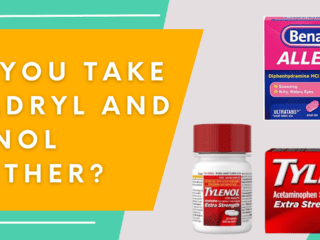As is the case with any other medication, there may be some instances where metoprolol interactions can occur. In such cases, use is not recommended or usage will have to be adjusted in order to prevent or reduce the risk of negative interactions occurring from other drugs, medical conditions, or even food and drink.
Drug Interactions
According to the FDA, drugs that may interact with metoprolol include the following:
- Catecholamine-depleting drugs, such as reserpine used to treat hypertension and monoamine oxidase (MAO) inhibitors used to treat depression
- CYP2D6 Inhibitors, such as fluoxetine (Prozac), paroxetine (Paxil, Pexeva), and quinidine
- Digitalis, clonidine, and the calcium channel blockers diltiazem and verapamil
Please note that this list may not be complete, and other interactions with drugs not listed here may occur.
Metoprolol and Potassium
Metoprolol and other beta-blockers may prevent body cells and tissues from absorbing potassium from the bloodstream, causing potassium levels to be higher than normal, a condition known as hyperkalemia.
Metoprolol and Aspirin
Using metoprolol and caffeine after taking aspirin may increase the level of salicylic acid, which is the compound responsible for the antiâinflammatory action of aspirin.
Tylenol
There are no known interactions between metoprolol and acetaminophen, sold under the brand name Tylenol. This does not necessarily mean that no interactions between the blood pressure medication and pain reliever exist.
Ibuprofen
Using metoprolol and ibuprofen together may reduce the ability of metoprolol to lower blood pressure, especially if the consumer uses ibuprofen frequently or regularly.
Weed (Marijuana)
Recent research suggests marijuana may interfere with the way metoprolol and other heart medications work.
Aleve
Combining Aleve (naproxen) with metoprolol may reduce the effects metoprolol has on lowering blood pressure, particularly in patients who take Aleve frequently for chronic pain.
Xanax
Xanax (alprazolam) may enhance the way metoprolol lowers blood pressure, causing headache, dizziness, fainting or lightheadedness, and/or changes in the consumer’s heart rate.
Famotidine
There are no known interactions between famotidine and metoprolol; this does not necessarily mean that no interactions exist.
Supplements
Using metoprolol with some supplements, such as multivitamins with minerals, may decrease the effects of metoprolol.
Cymbalta
Cymbalta (duloxetine) may increase the effects and blood levels of metoprolol.
Cialis
Cialis (tadalafil) may increase the effects of metoprolol.
Norvasc
Norvasc (amlodipine) may add to the blood pressure-lowering effect of metoprolol.
Benadryl
Benadryl (diphenhydramine) may add to the blood pressure-lowering effect of metoprolol.
Viagra and Lopressor
Viagra (sildenafil) can add to the blood pressure-lowering effect of metoprolol.
Food Interactions
Sometimes the foods we eat and the beverages we drink can also interact with our medications. Food and drink that may interact with metoprolol include:
- Alcohol
Please note that this list may not be complete, and that other foods and beverages that interact with this drug.
Metoprolol and Alcohol
For more information, please visit our page on metoprolol and alcohol interactions.
Herbs
Some herbs can have direct or indirect effects on the cardiovascular system to enhance or diminish the effects of blood pressure medications, like metoprolol. These herbs can include St. John’s wort, garlic, ginkgo biloba, ginseng, grapefruit juice, motherwort, saw palmetto, hawthorn, and echinacea.
Metoprolol Interaction with Grapefruit
There are no known interactions between metoprolol and grapefruit, but that does not mean that there are no interactions between the metoprolol and grapefruit.
Disease & Conditions Interactions
Sometimes certain medications can increase the risk of negative side effects for patients with certain diseases or other medical conditions. According to the FDA, diseases and medical conditions known to negatively interact with metoprolol include:
- Bronchospastic diseases, such as asthma and COPD, which are respiratory conditions that cause narrowing of the airways.
- Major surgery, as the action of metoprolol increases the risks of general anesthesia and surgical procedures.
- Diabetes and low blood sugar levels, or hypoglycemia, as metoprolol may mask symptoms of hypoglycemia.
- Thyrotoxicosis, a condition in which there is too much thyroid hormone in the body, as metoprolol may mask signs of hyperthyroidism.
- Peripheral vascular disease, a blood circulation problem, metoprolol may aggravate symptoms of arterial insufficiency.
- Hypertension (high blood pressure) treated with calcium channel blockers such as diltiazem or verapamil.
Please note that this list may not be complete, and there may be other diseases and medical conditions where patients should not take this medication.
Metoprolol and Weight Gain
Metoprolol and other beta-blockers may cause rapid weight gain during the first few months of treatment. The average weight gain is approximately 2.6 pounds (1.2 kilograms). Older beta-blockers, such as metoprolol and atenolol (Tenormin), are more likely to cause weight gain than are newer beta-blockers.
Metoprolol and Pregnancy
For more information, please visit our page on metoprolol and pregnancy risks.
Metoprolol and Asthma
Research shows metoprolol and other beta-blockers are safe for most patients with asthma, as metoprolol selectively inhibits beta-1 receptors found in the heart.
Metoprolol and Diabetes
According to the FDA, metoprolol and other beta-blockers can mask fast heartbeat, or tachycardia, occurring with low blood sugar associated with diabetes. Metoprolol may not affect other signs and symptoms of low blood sugar, or hypoglycemia, such as dizziness and sweating.
Metoprolol and ED (Erectile Dysfunction)
It is a common assumption that metoprolol and other beta-blockers cause erectile dysfunction (ED), which is the inability to get or keep an erection firm enough to engage in sexual intercourse. Research suggests that ED associated with the use of beta-blockers is uncommon, and that the ED may have been a psychological reaction on the part of men who had heard about the potential for an association between beta-blockers and erectile dysfunction.
Disclaimer: this article does not constitute or replace medical advice. If you have an emergency or a serious medical question, please contact a medical professional or call 911 immediately. To see our full medical disclaimer, visit our Terms of Use page.





